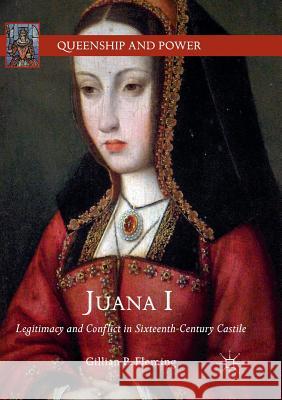Juana I: Legitimacy and Conflict in Sixteenth-Century Castile » książka
topmenu
Juana I: Legitimacy and Conflict in Sixteenth-Century Castile
ISBN-13: 9783030089702 / Angielski / Miękka / 2019 / 356 str.
Kategorie BISAC:
Wydawca:
Palgrave MacMillan
Seria wydawnicza:
Język:
Angielski
ISBN-13:
9783030089702
Rok wydania:
2019
Wydanie:
Softcover Repri
Ilość stron:
356
Waga:
0.45 kg
Wymiary:
21.01 x 14.81 x 1.98
Oprawa:
Miękka
Wolumenów:
01
Dodatkowe informacje:
Wydanie ilustrowane











